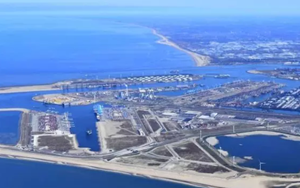News
Air Liquide to build a world-scale CO2 capture unit to contribute to Rotterdam’s industrial basin decarbonization
Air Liquide has announced that it will build, own and operate a world-scale carbon capture unit in the industrial basin of Rotterdam, the Netherlands, leveraging its proprietary Cryocap technology. The new unit will be installed at the group’s H2 production plant located in the port of Rotterdam and will be connected to Porthos, one of Europe’s largest carbon capture and storage infrastructure aiming at significantly reducing CO₂ emissions in this large industrial basin.
Air Liquide will capture the CO₂ from its existing world-scale H2 plant in the port of Rotterdam, leveraging Cryocap, a technological solution for CO₂ capture using a cryogenic process. Captured CO₂ will then be transported through the Porthos infrastructure, which is currently being developed, and permanently stored in depleted gas fields in the North Sea, approximately 20 kilometers off the coast. The carbon capture unit will be operational in 2026. Through this project, Air Liquide will be able to supply H2 that will be significantly decarbonized, to its long-term customers, as contracted.
The Porthos infrastructure overall will enable to reduce emissions by 2.5 MMtpy of CO₂—equivalent to around 10% of the current Rotterdam industry CO₂ emissions. The European Union has recognized Porthos as a major cross-border infrastructure project, contributing to the achievement of energy and climate policy objectives, and has included Porthos to the list of Project of Common Interest.
Emilie Mouren-Renouard, member of Air Liquide’s Executive Committee and Chief Executive Officer of the Europe Industries Hub said, “We are pleased to take another concrete step to contribute to the decarbonization of one of Europe’s largest industrial basins while participating to the development of Porthos. This new world-scale CO₂ capture unit illustrates our expertise and commitment to implementing decarbonization solutions, both for our customers and our own assets, in line with the Group’s ADVANCE strategic plan to reduce its CO₂ emissions by 33% by 2035.”


